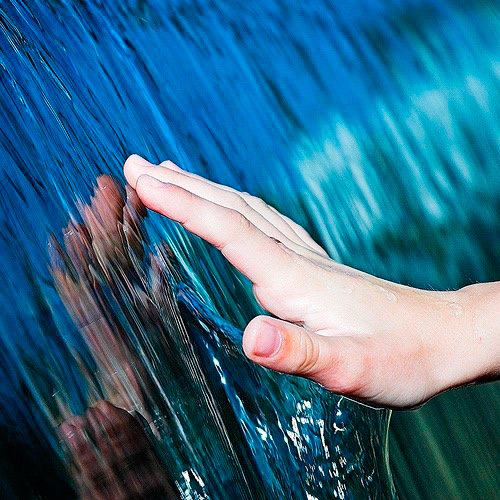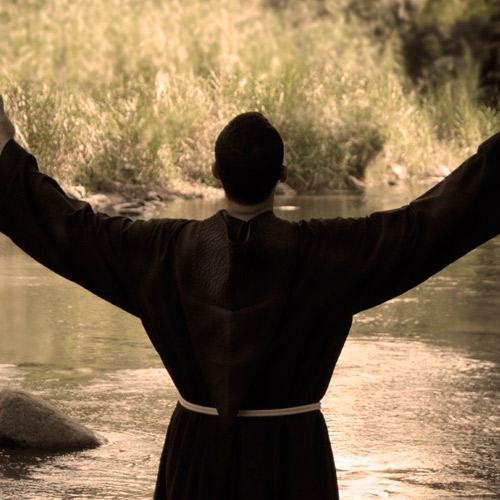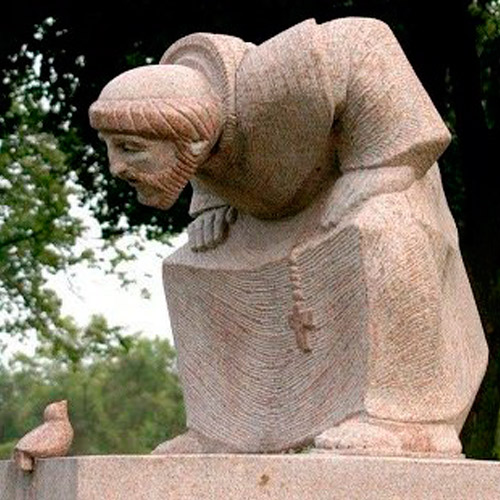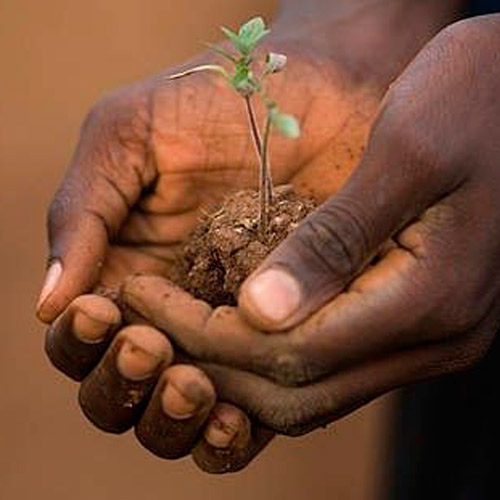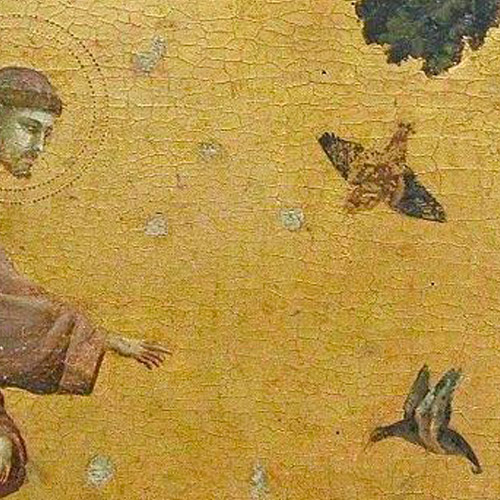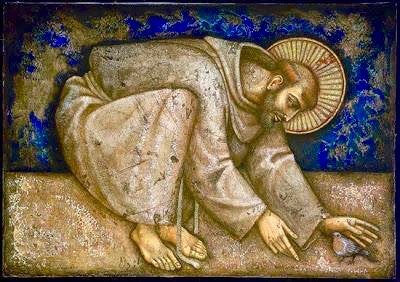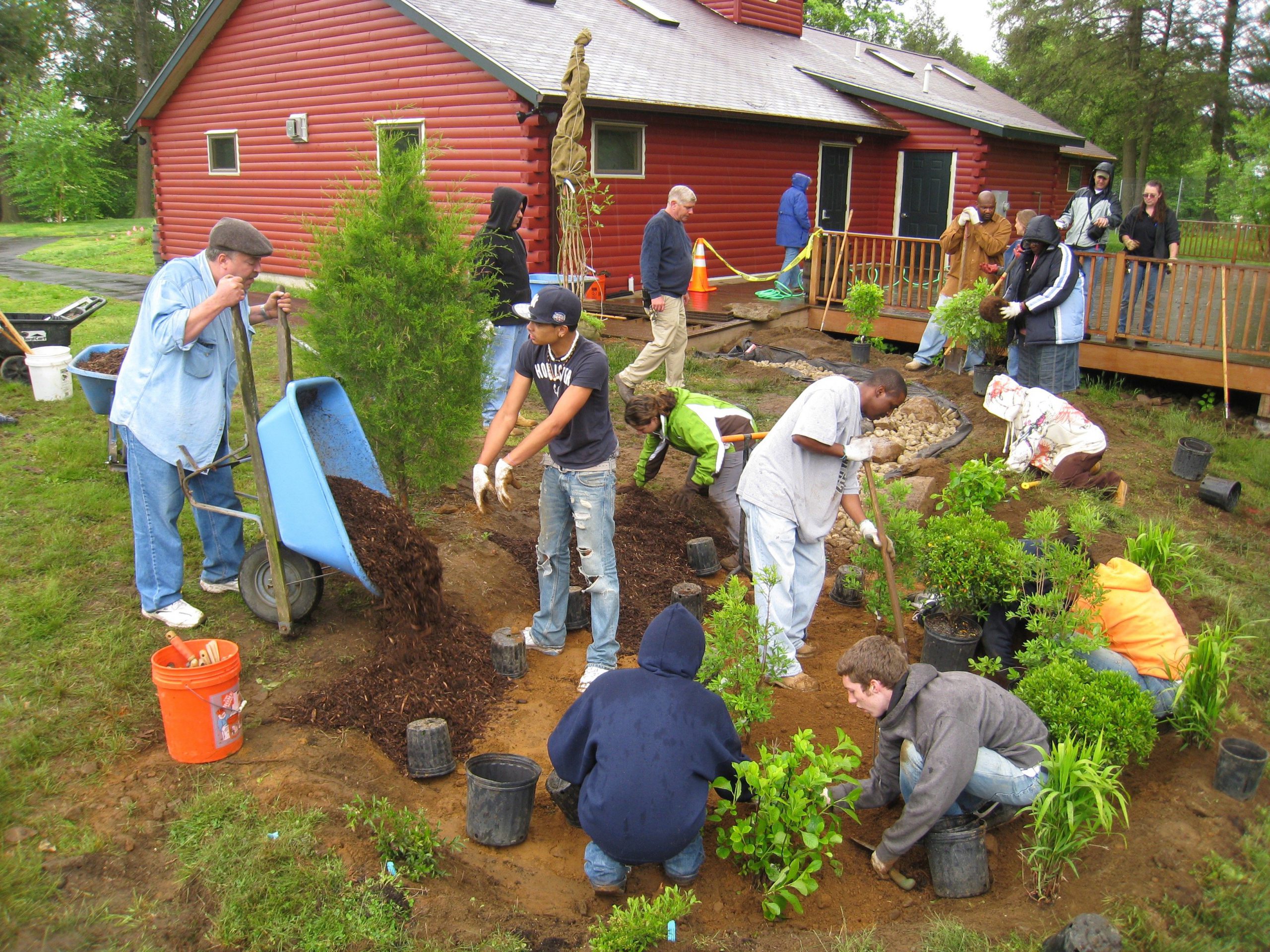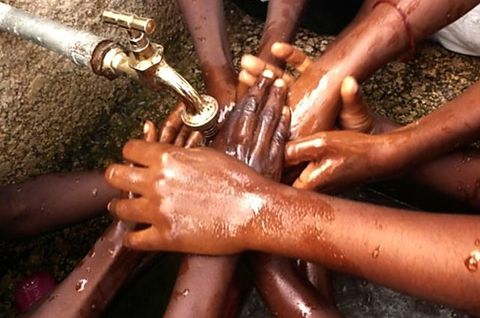Creation
St Francis’ love for all God’s creatures is taken as a given in his first biographies. Francis’ companions said: “We who were with him saw him always in such joy, inwardly and outwardly, over all creatures, touching and looking at them, so that it seemed his spirit was no longer on earth but in heaven.” (Assisi Compilation 88).
As has been repeated in many places, Francis, in his own way of being in the world, does not stand over things, possessing or dominating them. Rather, he stands together with them and with the rest of humanity to form part of a whole. He treats them as brothers and sisters, for all things have come from the same hands of God the Father.
There was nothing in the world profane for St Francis. We must beware, however, of making a mere naturalist out of St Francis. He loved creation indeed, but first of all he learned to love himself by renouncing himself - “The Lord gave me thus to do penance” - his whole life from the time of his conversion was one of penance. He renounced self, self-will, self-love, self-seeking, in order to make that self-surrender to walk the way of Him whose sole desire was: “to do not His own will, but the will of Him who sent Him.” (Jn 6:38).
Francis considered himself a pilgrim and stranger in the world, yet he loved dearly all creation and every creature: “In every piece of workmanship he praised the craftsman; whatever he found done he referred to the Doer of it. He exulted in all the works of the Lord’s hands, and penetrated through those pleasant sights to their life-giving Cause and Principles. In beautiful things he recognised Him who is supremely beautiful; all good things cried out to him: ‘He who made us is Best’.” (Celano, Second Life of Francis, ch.124, art.165).
The attitude of respect, communion and fraternity with all created things forms part of our tradition and our spirituality. It is recognised by our General Constitutions (Art.1,2) and by others as a Franciscan characteristic. The challenge for us Friars, however, is how to live this spirituality today in the face of the great ecological crisis in which we are enveloped. We face the challenge of how to translate this spirituality into an ethic, a style of life that humanises and restores, and even into political action that confronts the root causes of environmental destruction. We ask ourselves: how do we Friars, in a concrete and practical way show: “a reverent attitude towards nature, threatened from all sides today, in such a way that we may restore it completely to its condition of brother and to its role of usefulness to all people for the glory of God the Creator.” (General Constitutions, 71).
As Brothers of all creation we are resolved to a moderate, sober and just use of resources, beginning with the famous three R’s of ecology - reduce, reuse and recycle. We avoid what is superfluous and wasteful, without ceasing to enjoy the small things that are part of everyday life. Voluntary detachment from things, simplicity of life and joy for the gift of existence are Franciscan attitudes of reverence for creation and of concern for the common good.
We are not proposing stoic renunciation but rather the joyful freedom of those who prefer to consume less in order to promote more the wellbeing of others, especially with regards to human relations. We seek to know what is essential for human happiness, and what is superfluous. And we affirm that God can be known and experienced through the beauty of creation: “for his invisible attributes, namely, his eternal power and divine nature have been clearly perceived, ever since the creation of the world, in the things that have been made.” (Rom.1:20).

